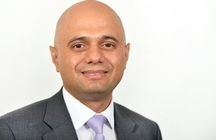Sajid Javid – 2022 Statement on a Smokefree 2030
The statement made by Sajid Javid, the Secretary of State for Health and Social Care, in the House of Commons on 9 June 2022.
In 2019, this Government set the bold ambition for England to be smokefree by 2030—reducing smoking rates to 5% or less.
Today, Dr Javed Khan OBE published his independent review on Smokefree 2030, providing this Government with a wide range of recommendations for how we can achieve this ambition.
Tragically, smoking remains the single biggest cause of preventable illness and death across the country. There are still almost 6 million smokers in England—and two out of three will die from smoking unless they quit.
Although smoking rates have fallen, we know that they are currently not falling fast enough.
The Government are committed to levelling up society and extending the same chances in life to all people and all parts of our country. However, smoking is one of the largest drivers of health disparities and rates vary substantially across different parts of the country. As stated by Dr Khan in his independent review, at its most extreme, smoking prevalence is 4.5 times higher in Burnley than in Exeter.
Smoking is a significant drain on the household finances of our most disadvantaged families. In Halton in Cheshire, smokers spend an estimated £3,551 a year on tobacco, nearly 15% of their income. Reducing smoking presents a huge economic opportunity in higher disposable income and higher labour productivity.
Smoking is particularly high amongst certain populations, and one third of all cigarettes smoked in England are smoked by people with a mental health condition. Nearly 10% of mothers smoke at the time of giving birth, increasing the risk of sudden infant death syndrome by over three times compared to mothers who do not smoke. Further, the risk of stillbirth is increased by at least 60% if the father smokes. Smoking is also known to increase the risk of miscarriage.
Behind all of these statistics are individuals, families and communities who are suffering from the harms of tobacco. This Government are committed to doing more to help smokers to quit and stop people from taking up this deadly addiction. We also know that most smokers want to quit.
For these reasons, we asked Dr Khan to undertake this independent review to help the Government reduce the devastation that smoking causes in our communities. There are a number of recommendations in Dr Khan’s independent review. The Government will now consider their response.
There is a call for greater investment—from local authority-led stop smoking services, through to improved data and evidence. The Government are already investing funding through the public health grant, but we will examine where we can go further.
There is a call to offer vaping as a substitute for smoking. Vaping is far less harmful than smoking and is an effective quitting device. It is recognised that there is much more Government can do to tackle the myths and misconceptions that surround vaping. We have worked with the MHRA to provide guidance to support bringing e-cigarettes to market as licensed therapies and this Government will take forward a range of work on vaping as a substitute for smoking in due course.
Dr Khan also calls for the NHS to prioritise further action to stop people from smoking. Smoking costs the NHS £2.5 billion every year. The benefits of focusing on preventing smoking-related illnesses, rather than treating them, are clear for patients and the NHS themselves.
This Government are determined to address the challenges raised in the independent review and to meet the Smokefree 2030 target. We know that more action needs to be taken to protect our people from this dangerous addiction.
The Department will now carefully consider the recommendations set out in this independent review. The independent review will help to inform our upcoming White Paper on health disparities, which we plan to publish this summer. To complement this, the Department will also be publishing a new tobacco control plan in due course.
We would like to thank Dr Khan for his far-reaching work on the independent review, and for his clear and challenging recommendations.
A copy of the independent Khan review will be deposited in the Libraries of both Houses.


